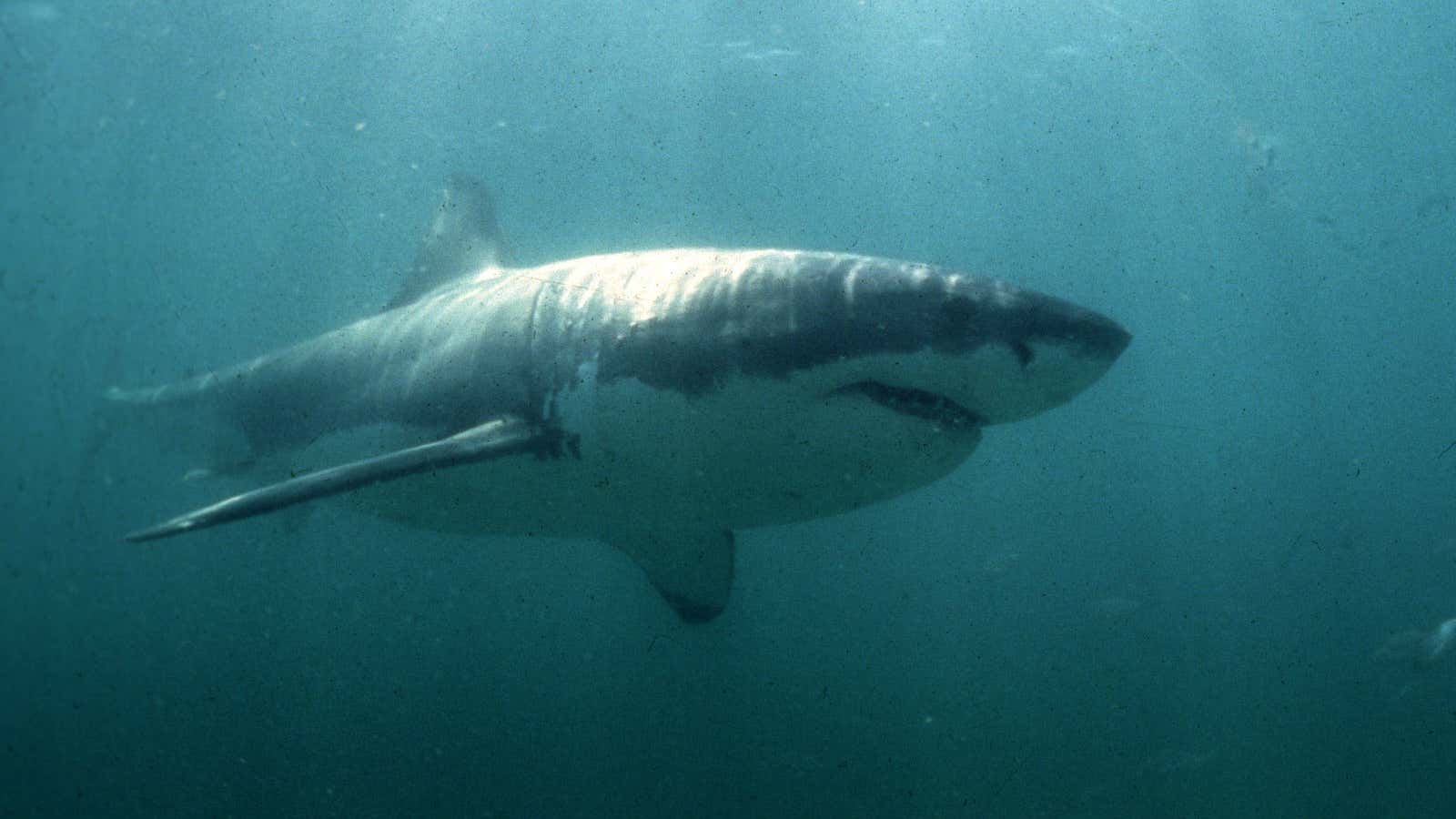South Africa’s great white shark population has dropped by half and is now in danger of being wiped out, according to a new study by researchers at Stellenbosch University, South Africa
The study, published last month in Marine Ecology Progress Series, described by its authors as the largest ever field research study on South Africa’s great white sharks, entailed genetic sampling techniques and analysis of unique markings on dorsal fins photographed in waters near Gansbaai, a fishing town in Western Cape, known for its dense shark population.
After the conclusion of the six-year study, researchers found that the shark population has not only dropped but may now be below the threshold necessary for breeding and long term survival of the species in the area. ”The numbers in South Africa are extremely low. If the situation stays the same, South Africa’s great white sharks are heading for possible extinction,” says lead researcher Sara Andreotti.
They’ve counted 333 South African great whites that are able to contribute offspring to the next generation, but that figure is not high enough. “Previous research on other species indicate that a minimum of 500 breeding individuals are required to prevent inbreeding depression,” says Andreotti.
The study also notes that South African great white sharks have the lowest genetic diversity of white shark populations across the world. This peculiarity may result in breeding difficulties and high risk of illness.
The decline in South Africa’s shark population has been blamed on several factors including trophy hunting and pollution, but the study suggests that human protection measures such as shark nets resulted in the death of around 1,000 sharks between 1978 and 2008.
With the sharks crucial for balance in the ecosystem, the study says the “loss of such an apex predator will have a cascade of detrimental effects on the ecological stability of the marine environment”. One predicted outcome is a sharp rise in the population of fish-eating seals, which could in turn impact fish populations and local fisheries.
